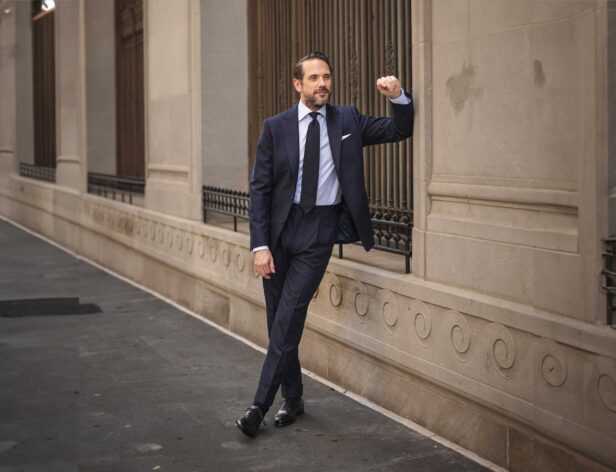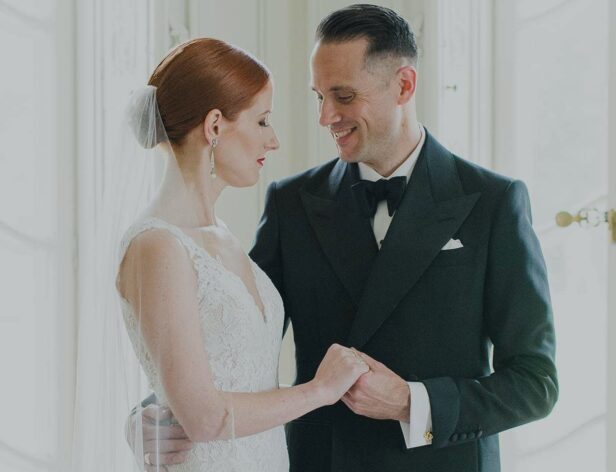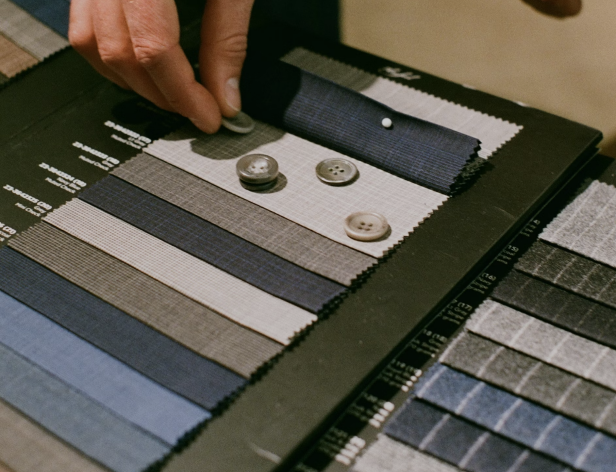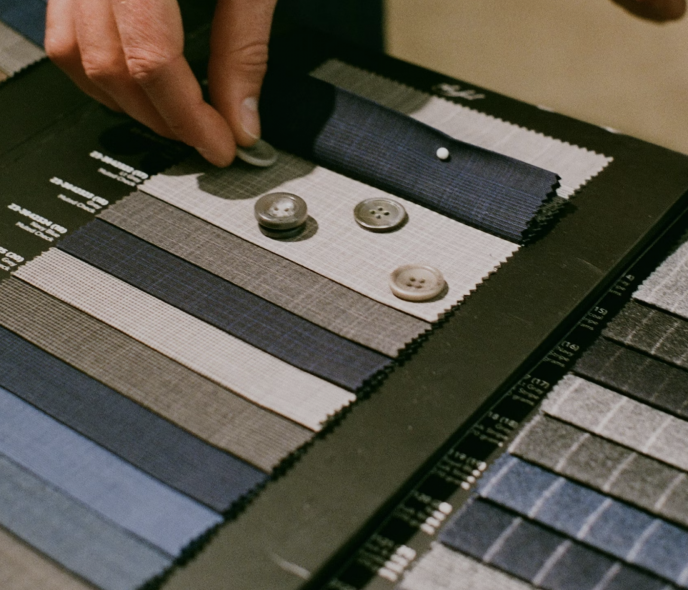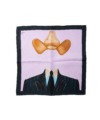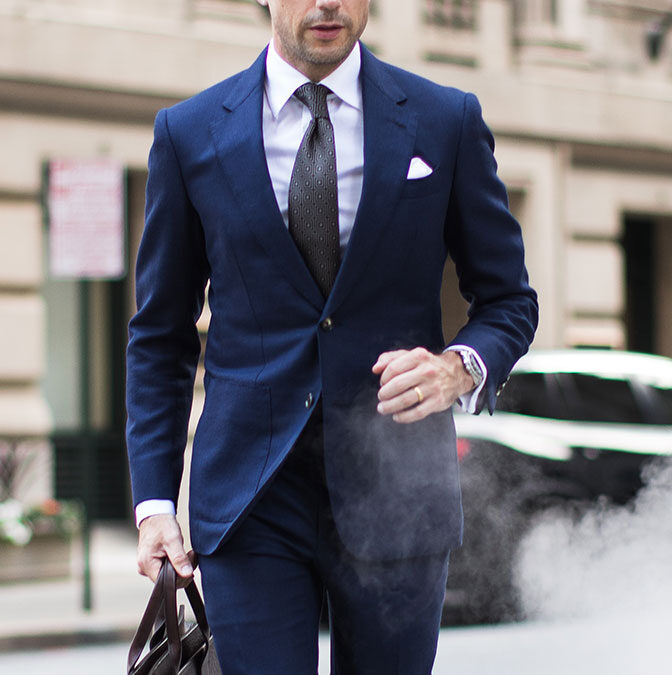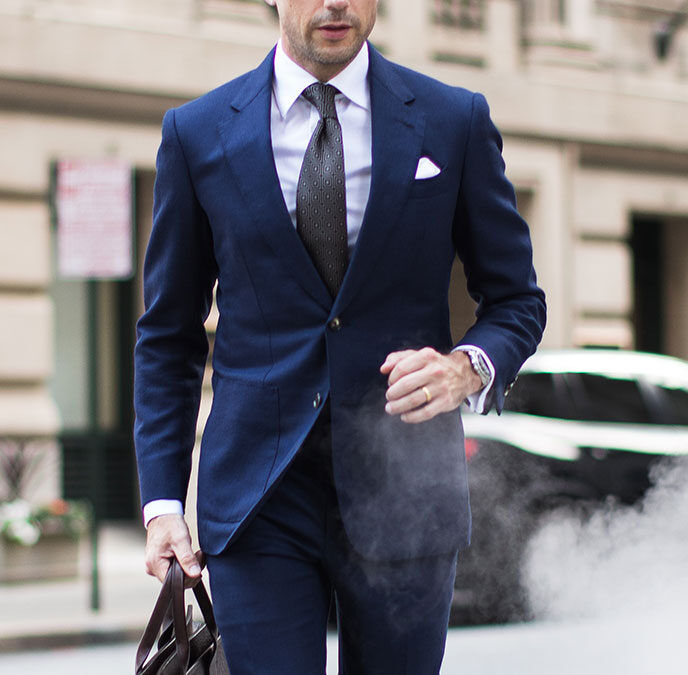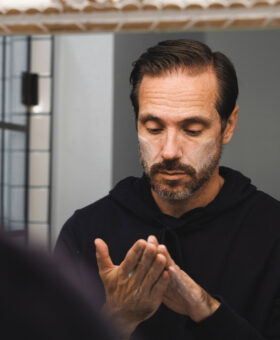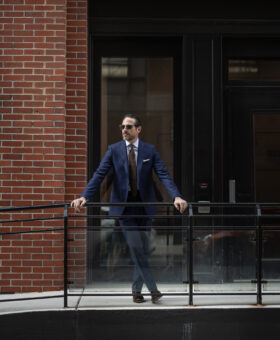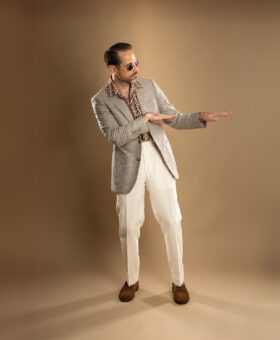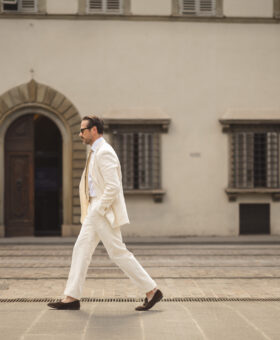
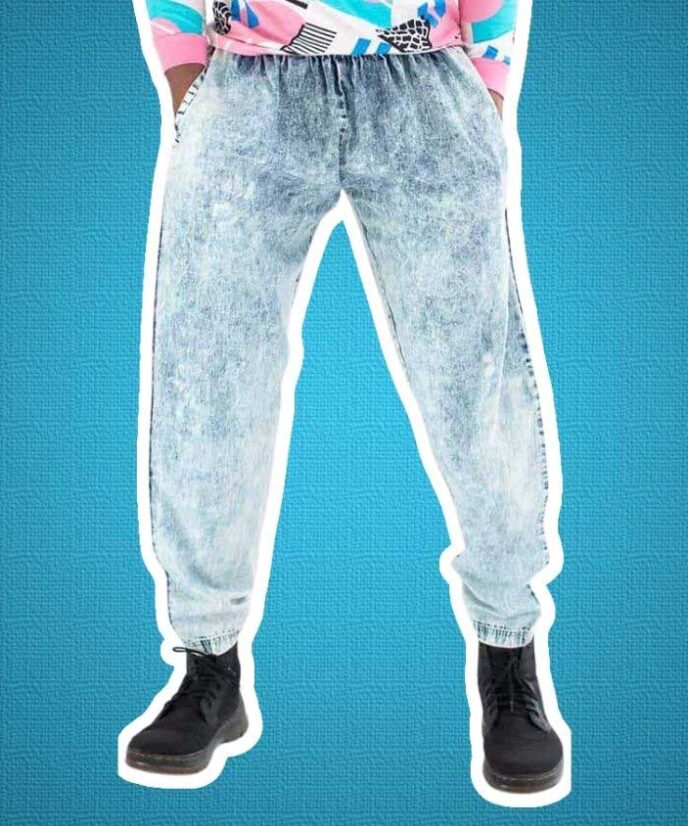
Share
Jeans, tailoring, and more, oh my!
Don’t worry, it happens to the best of us. We all get drawn in by the allure of fleeting fashion trends from time to time. Maybe a celebrity we respect wore it. Maybe a friend suggested it. Or maybe you even had a significant other force it upon you. It seemed to work at the time and no one had any complaints. But then 10 years pass by and that mistake is still getting time in your rotation. You got comfortable in it and the look settled into your fashion blind spot. While that style may have worked in its time, it doesn’t now and it is dating you every time you wear it.
Being the good friends that we are here at HSS, we decided to put together a list of 10 styles that date you so you can spot them if they are still in your wardrobe. Listen, we know you have good taste but sometimes you just need a third-person perspective to point these things out. The styles in this post range from the 1980s to the 2010s and we all participated in some of these styles at one point or another – don’t try to pretend you didn’t! Many of them are cyclical fashions that have come and gone multiple times over the past century. So maybe if you stash some of them away they will come back into fashion some day, but for now they’re just dating you.
1. Acid Washed Denim – 1980s
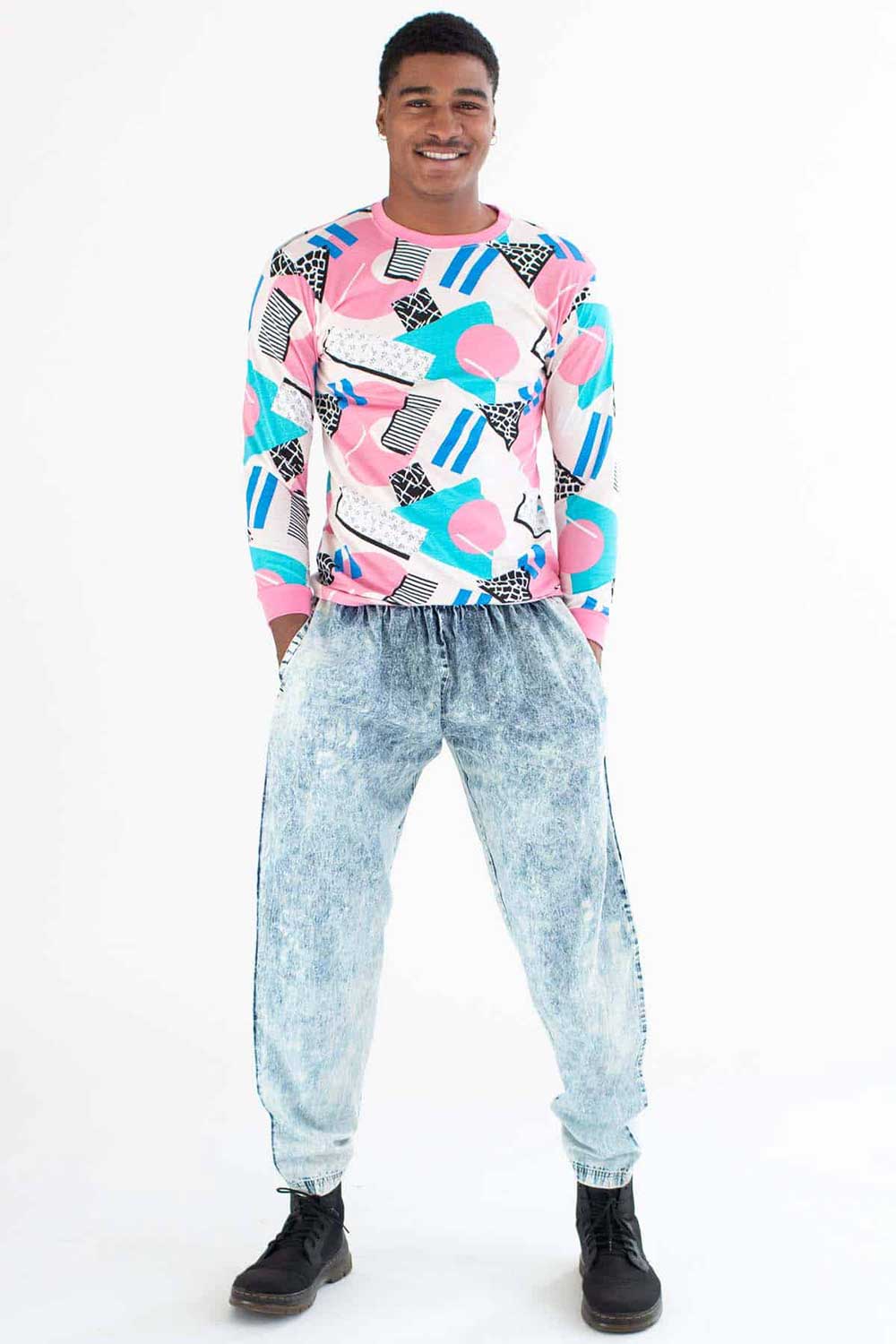
Good denim ages beautifully. It is one of the characteristics of the fabric that have made it so appealing for so long. As you wear a pair of jeans or a denim jacket, they develop a patina that is unique to your body’s shape and what you do with it – this is particularly true of raw selvedge denim. In the 1980s, designers started to artificially age denim to bring out its many shades and textures with chemicals. Thus, the birth of acid washed jeans.
The problem with acid washing jeans is that you take away most of the potential for building your own patina. It creates a look that you’re set with because your jeans have already been aged for you. This didn’t seem to matter to most people in the 1980s because acid washed jeans were everywhere. Acid washing is also inextricably linked to the distinct fits of the 1980s: high waists, loose hips, tight ankles. Most people who wear acid washed jeans today probably got them at a thrift shop but you will definitely come across older people who have held onto theirs since the 1980s. And if you’re in your mid- to late-40s, it’s one of the styles that date you.
2. Oversized Tailoring – 1990s
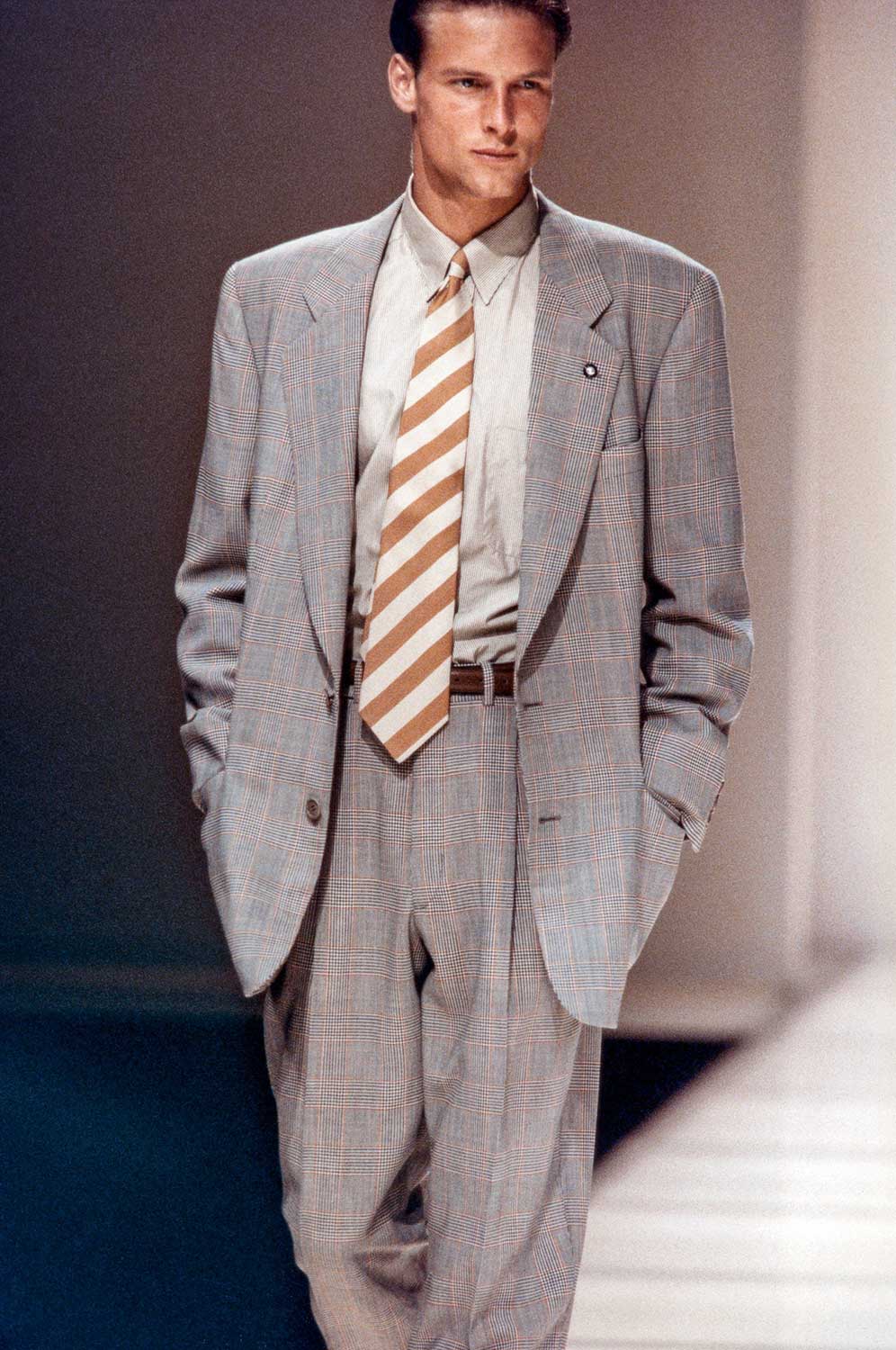
In the 1984 concert film Stop Making Sense, Talking Heads lead singer David Byrne wore progressively larger versions of the same gray suit as the show went on. By the show’s end, his suit was so comically oversized that he looked like a small child wearing his father’s jacket. A decade later, Byrne’s joke turned out to be prophetic. Tailoring in the 1990s became so oversized that, compared to their 1960s counterparts, most men looked like children wearing adult clothing.
The thing is, suits that have stuck around in your father’s closet for all this time might actually become fashionable again. Just like most fashion trends, oversized tailoring is cyclical. Designers in the 1990s were inspired by the 1940s. Now the cycle is starting to come back around as some celebrities, under the influence of professional stylists, are starting to wear drastically enlarged tailoring. Justin Bieber wore a gray suit — custom, by the way — to the 2022 Grammys that looked so enormous it could easily be mistaken as an homage to David Byrne. For now, though, it is still one of the styles that date you.
3. Cargo Shorts and Pants – 1990s, 2000s
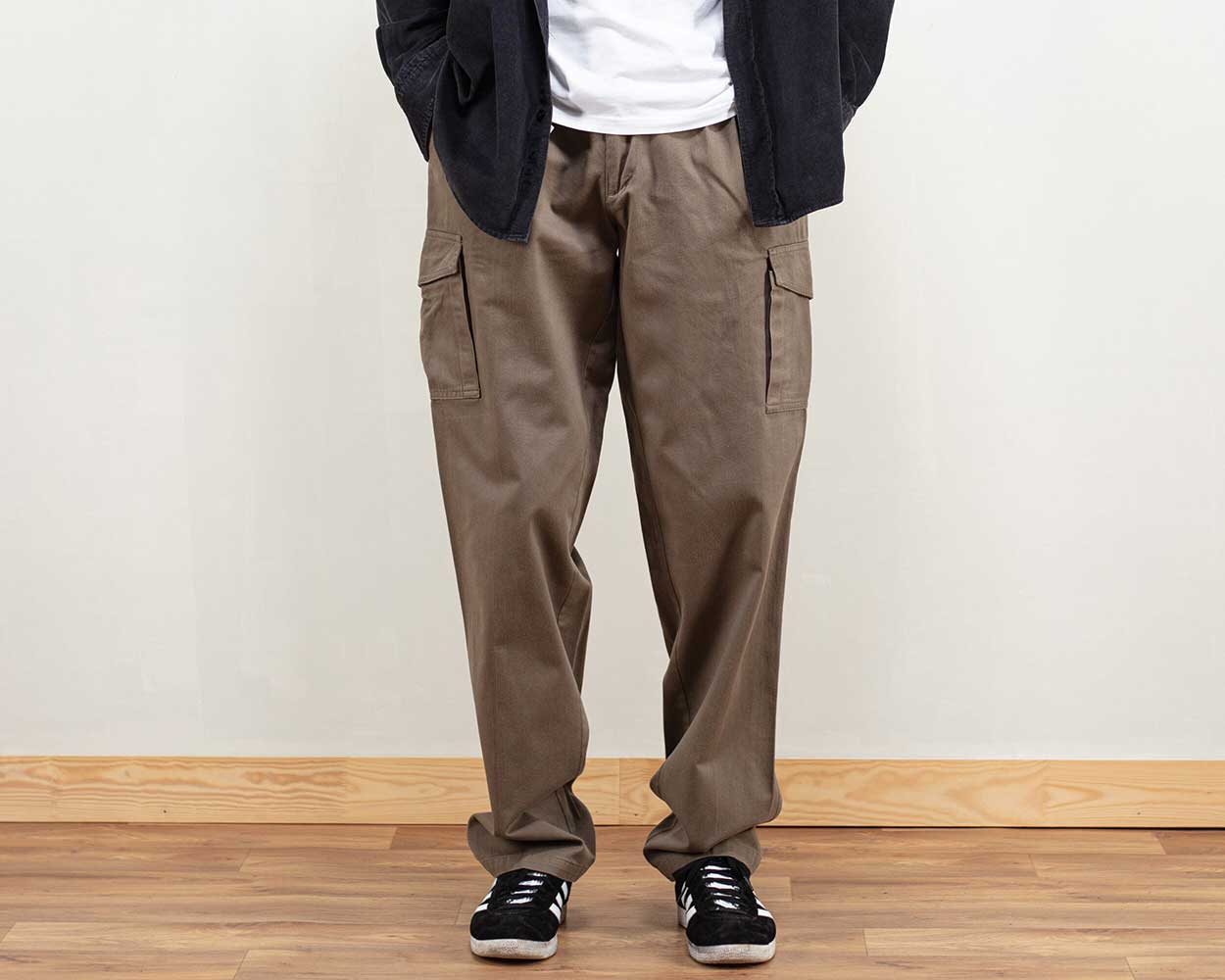
Cargo pockets were added to the hips of American Army uniforms during WWII to help them carry everything they needed on their march across Europe. The feature eventually made its way through military surplus into popular fashion during the 1990s. Cargo pants and shorts were common everywhere from mall retailers to runways. Every brand offered their take and everyone had at least one pair in their closet.
The irony is that all the extra pocket space was almost never utilized. For good reason too. Anything placed in the pockets would shake around as you walked. If it was metallic, it would jingle. If it had any kind of heft to it, your pants would twist around uncomfortably with each step. The pockets were purely aesthetic in most cases, with some not ever featuring buttons on the flaps. Functionally, they were more trouble than they were worth.
The trend was so popular that it persisted into the 2000s. It was only during the great #menswear revolution of the 2000s that cargo pockets faded away. Men decided that they no longer needed the extra carrying capacity in their day-to-day wardrobe — whether they used it or not. (Perhaps that’s why there was an increase in stylish satchels, totes, and backpacks at the same time.) Cargo pockets never really died, however, with some brands occasionally reintroducing them with little success. If you see cargo pockets in the wild today you can tell they’re dated if they are baggy, while slim fitting versions are failed contemporary reissues.
4. 11”+ Inseam Shorts and Swimwear – Lates 1990s, Early 2000s
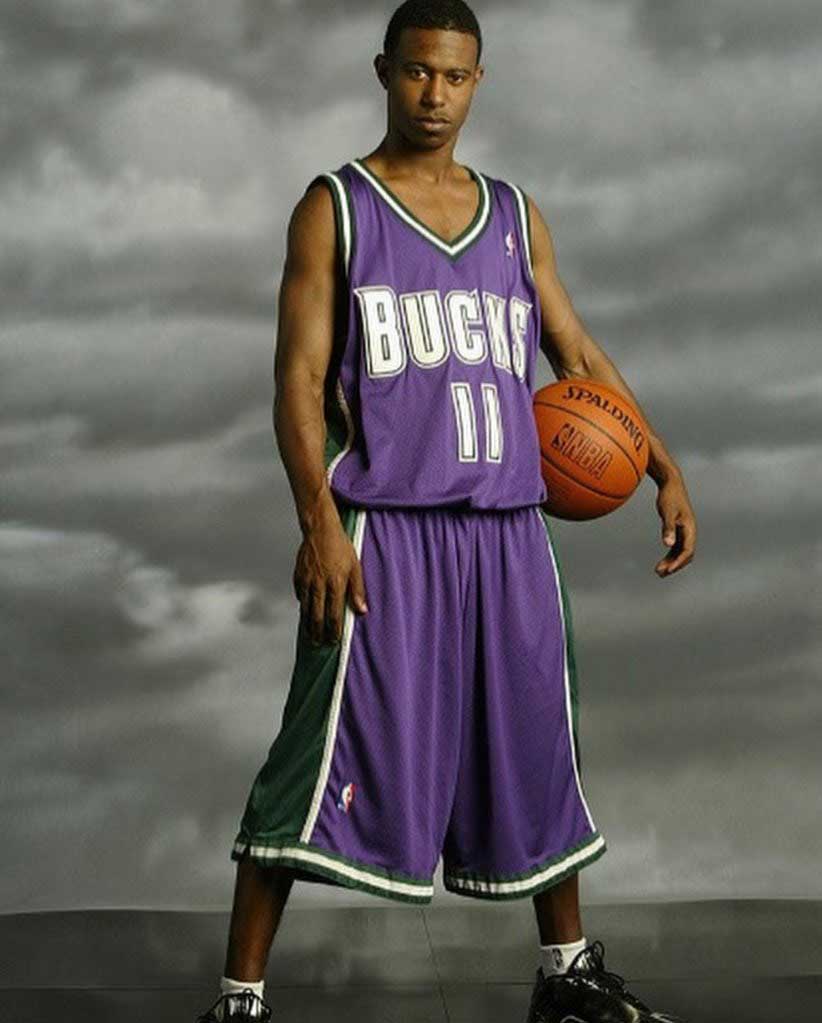
When watching NBA highlights from the late 1990s and early 2000s, you will see two things that stand out from today’s NBA — baggy shorts that drop past the knee and defense. LOL… Basketball players at the time were following the popular trend of long, baggy shorts because somewhere in the mid-1990s, shorts inseams headed south and just kept going. By the turn of the new millennium, it was common to see shorts and swimwear that almost reached the wearer’s ankles.
From the time of their introduction to popular fashion, shorts had a pretty consistent inseam that hit somewhere around the mid-to-lower thigh. Even as most other garments enlarged in the 1950s and the 1980s, shorts stayed pretty much the same length. So it’s difficult to pinpoint why they grew in the late 1990s but when they did, they grew fast. Some men embraced this trend during its heyday and they have persistently stuck with it.
The most notorious hanger-on to oversized shorts is Adam Sandler. His streetwear pics are so bad that they have taken on a cult-like following of almost, somehow, being good. Sandler is a legend with far too much money and success to have any regard for fashion trends. The rest of us mere mortals should leave oversized shorts back where they belonged twenty years ago.
5. Ed Hardy & Von Dutch – 2000s

The graphic designs of tattoo artist Ed Hardy and motorcycle brand Von Dutch were inescapable in the 2000s. While the two brands had no direct connection, they will forever be linked through a certain pop-culture look from that decade. Celebrities like Christina Aguilera, Paris Hilton, Justin Timberlake, and Ashton Kutcher popularized the Von Dutch trucker hat and Ed Hardy print t-shirts. Soon after, everywhere from high schools to night clubs were littered with the two brands.
Besides their contemporaneous hype, the two brands share a very particular tackiness that defined popular fashion from the 2000s. Ed Hardy was a tattoo artist who started his career while serving in the US Navy during WWII. His work had a cult following among tattoo enthusiasts until his estate sold his designs to be printed on overpriced clothing. Von Dutch had a cult following among bikers, starting out as a custom shop in the 1950s, until being rebranded in the 2000s. Even if you’re a tattoo artist who rides a custom motorcycle, the two co-opted brands were so played out in the 2000s that they will forever be associated by the decade’s poor fashion choices.
6. Over Embroidered Jean Back Pockets – 2000s
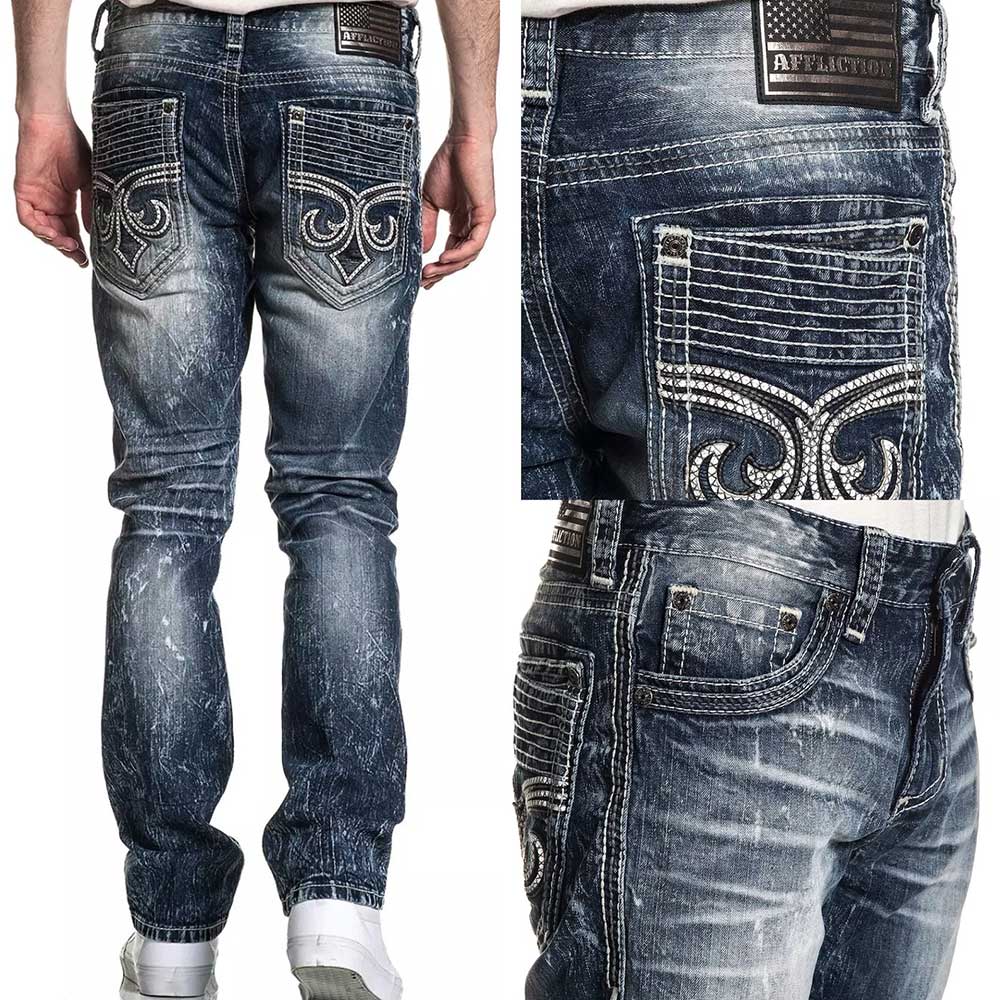
Levi’s and Wrangler are the oldest and most famous jeans companies in the world. As such, their distinctive back pocket embroideries are unmistakable signatures of each brand. Levi’s has parallel stitched lines in the shape of a curved V and Wrangler has parallel stitched lines in the shape of a W. Both marks are subtle and tasteful. For a while though, there were a lot of denim brands with back pocket embroidery that was neither subtle nor tasteful.
During the 2000s, the back pocket embroidery trend got out of hand. The jeans section of every department store in America was strewn with over-the-top brand “signature” embroideries. The idea was that every brand wanted their back pockets to stand out so an arms race ensued that saw jean pockets get gaudier and gaudier every season. The excessive detailing was not contained by the back pockets either as bold stitching and embroidery started to take over the entire pair of jeans.
Luckily, this trend died off after a critical mass was reached somewhere around 2006. Denim brands came to their senses and tamed their embroidery patterns. Since then, back pocket designs have been as subtle and tasteful as the two grandfathers of denim intended. There was even a reactionary push from many brands to have no back pocket embroidery at all. This trend still stands for many brands as they choose to place signature markings in places even more discreet than the back pocket. But for the 2000s, this is definitely one of the styles that dates you.
7. V-Neck T-Shirts – 2000s
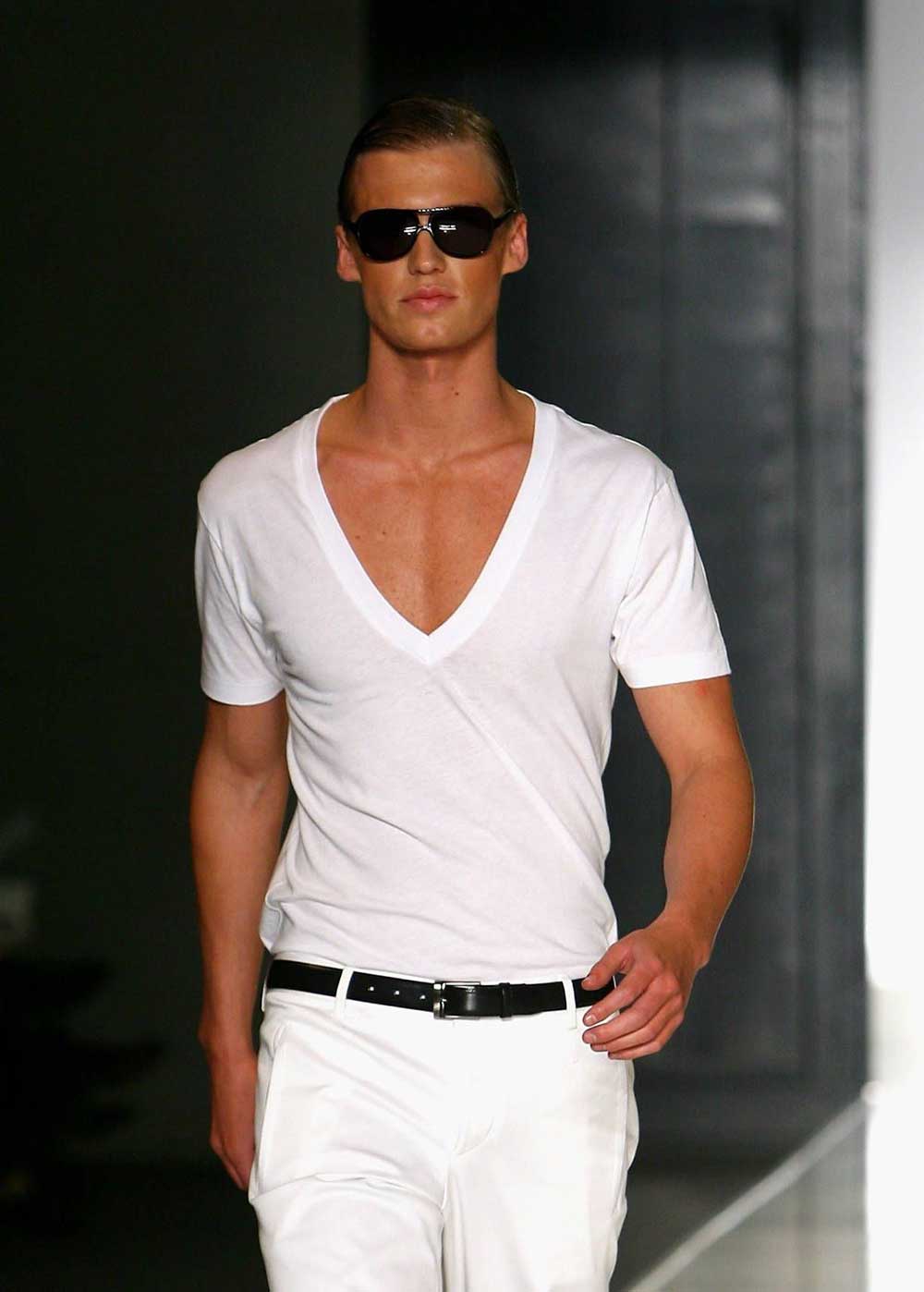
V-neck t-shirts were invented to be worn with collared shirts so that you could wear the collar unbuttoned without showing a t-shirt neck line. They still serve that purpose and any man who wears collared shirts should own some v-neck t-shirts. However, there was a brief decade or so when v-necks were a popular fashion by themselves. This trend turned the v-neck from a basic white undershirt into every color imaginable, eventually featuring graphics and prints of every kind.
Eventually the ‘V’ itself enlarged, resulting in the “deep V” that plunged down to the mid-chest. These also came in a variety of shapes and prints. The deep V was a staple of early hipster culture, worn by baristas and indie rockers. Whereas the standard v-neck tee, often in flashy colors and patterns, was a favored uniform of bro culture. Thankfully, a few years ago, we collectively returned the v-neck t-shirt to the underwear department where it belongs.
8. Tight Fitting Dress Shirts – 2010s
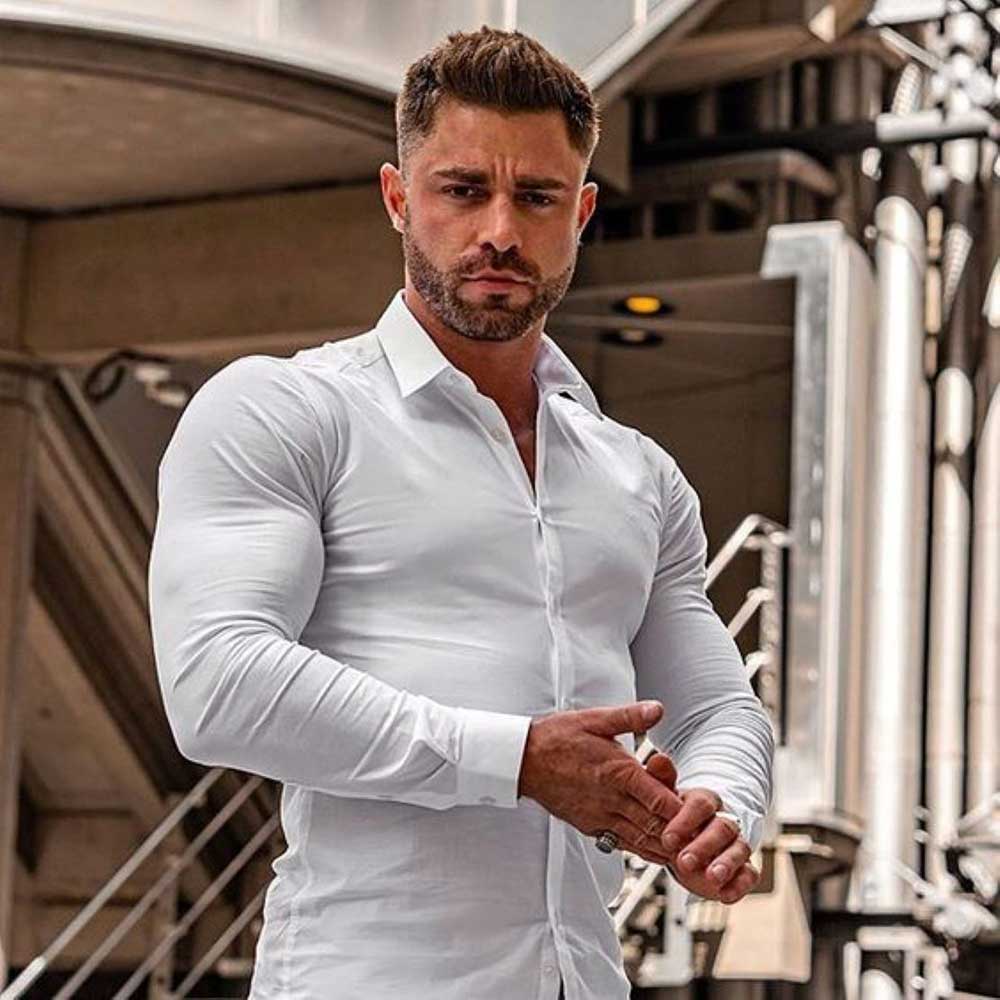
Tailoring slimmed down in the late 2000s as suiting made a comeback. Silhouettes mirrored the 1960s with clean, form-fitting lines. Tailored dress shirts became popular as well, also following the rule of clean lines. Some men got a little carried away however, and form-fitting turned into tight-fitting. These shirts ended up looking less like bespoke and more like athletic gear. They also looked downright uncomfortable.
This style became popular with gym culture as a way for swole bros to show off their hard earned muscles while still wearing a shirt and tie (thankfully, the sleeveless shirt and tie never caught on). Since stretch fabrics had not made their way into formalwear yet, these tight dress shirts were almost always 100% cotton. Mobility was limited and an unsightly button tugging often occurred. This trend has mostly disappeared but you will still see it occasionally from a man who either outgrew his shirt or is determined to show off his physique.
9. Skinny Ties – 2010s
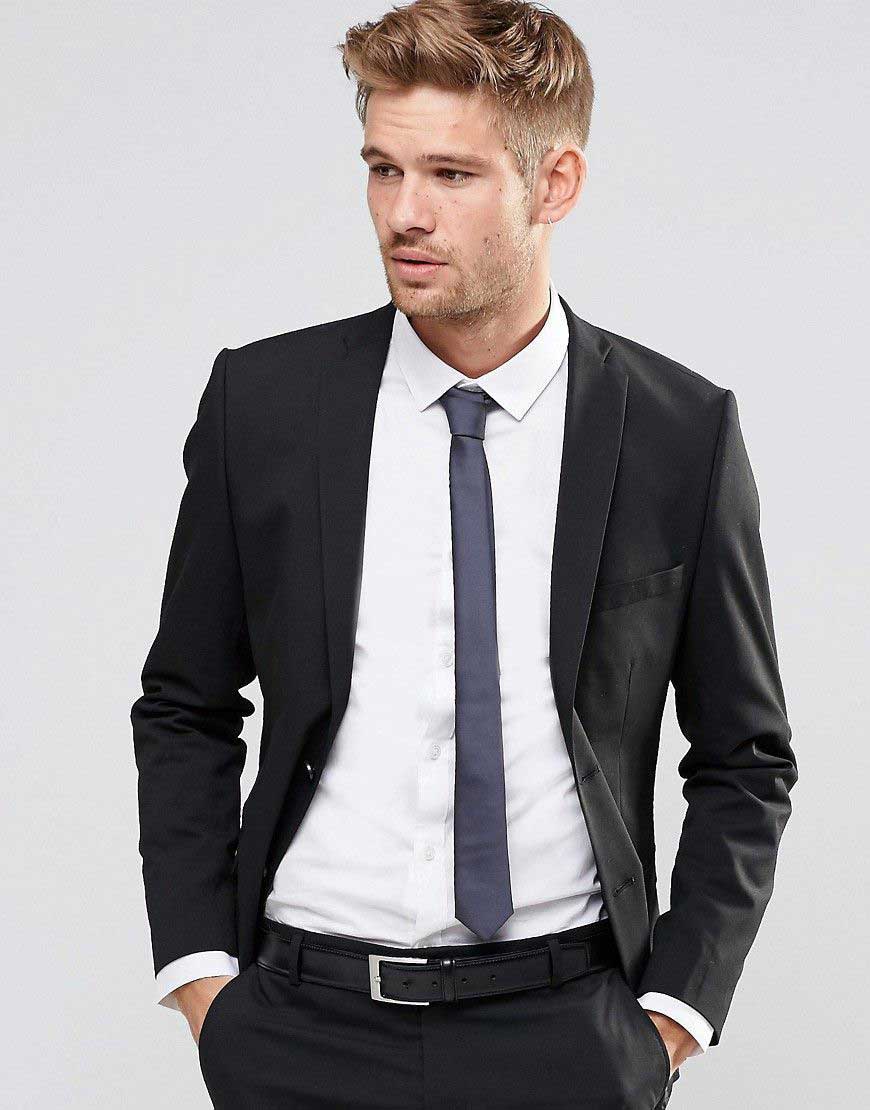
Skinny ties first appeared in the 1960s as Italian tailoring was adopted by American beatniks and English mods. The style made a comeback in the 1980s with an almost ironic twist. Then, in the 2010s, after suits had their day once again, “skinny” became the standard for ties once again. Suit styles were strongly influenced by the 1960s during this time thanks to designers like Thom Browne and Tom Ford as well as the massive popularity of the Mad Men television series.
For many millennial men, skinny ties were the only variety available when they were introduced to suits. That was just what ties looked like, so skinny ties were all you ever needed to own, right? Then suiting started to move more towards a middle ground. Although millennials learned that they had sartorially come of age when everything was relatively slim, now all those skinny ties are styles that date you.
10. Extra Narrow Lapels – 2010s
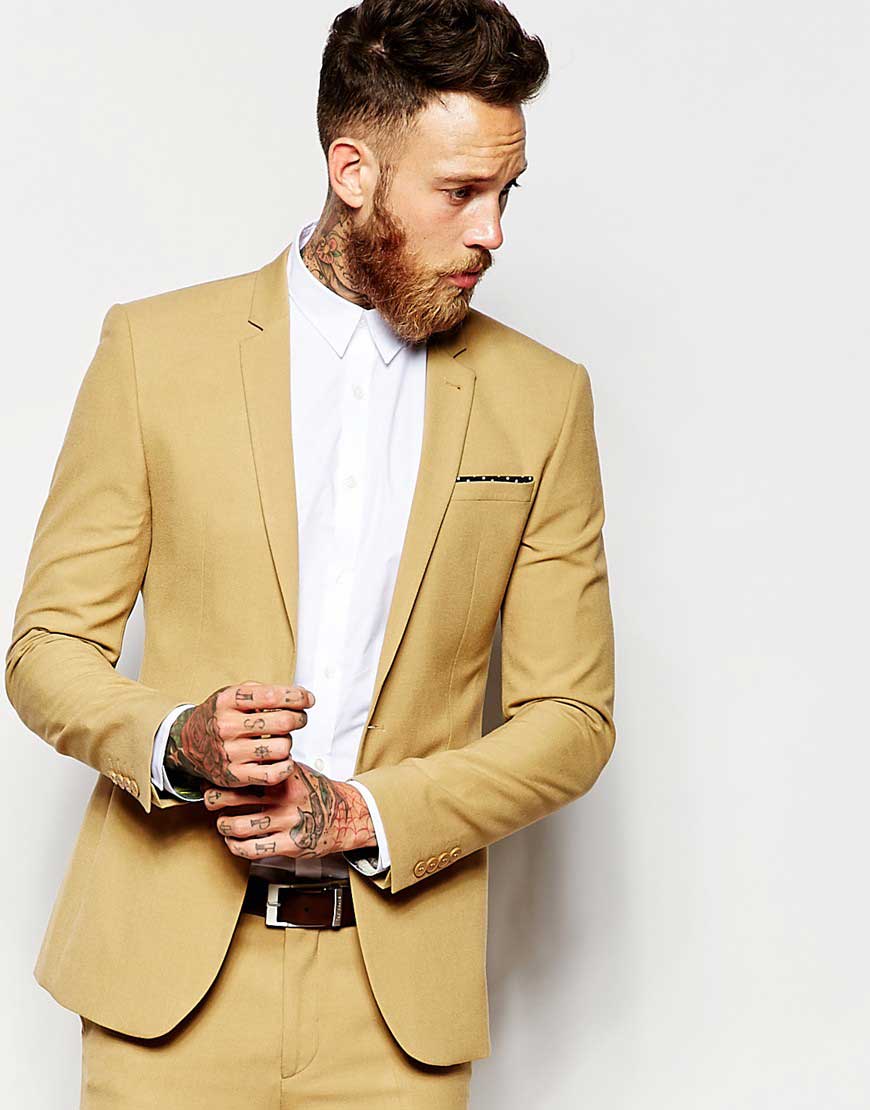
By rule, lapel width and tie width should match — or be generally similar — so the extra narrow lapel trend and the skinny tie trend are inextricably linked. Lapels have consistently narrowed and widened by the decade for as long as the modern suit has existed. However, they reached a width so narrow in the 2010s that they barely existed on some suits. When your lapel is little more than 2-inches, then you might as well not have one at all.
Whenever any style trend reaches extremes it starts to look silly and, thankfully, quickly rebounds to look a little more sensible. This is exactly what happened with suit lapels. Somewhere around 2018, lapels found a good (and proportionate) groove. Today’s suits are very much influenced by the 1970s and extra-wide lapels are a defining trait of that era. As lapels continue to get wider, the narrow ones we have left over from a decade ago are looking more and more like a style that dates you.
The problem is that replacing a suit is a little more expensive than replacing a tie and, as a society, we have a lot of suits with narrow lapels to replace. There are a lot of details about a suit that a good tailor can fix but lapel width is not one of them. So you will probably continue to see outdated lapels for a while as men stick with the suits they invested in years ago that otherwise still fit.
Styles That Date You: Bottom Line
It has been said that fashion is fleeting but style is timeless. The problem is that, even for the most stylish men out there, the two can be hard to differentiate. We all have items in our wardrobe that seemed timeless when we bought them but they turned out to be temporary. If you’re holding onto anything on this list then you should probably let it go. No judgement at all. Because we’re just here to tell you as a friend, that these are styles that date you.
